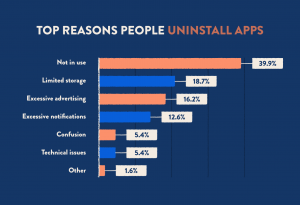It’s no secret that a lot of people have ambitions to give up their current jobs and start their own businesses. This is particularly acute in the services industry sector, where online platforms like Etsy and Redbubble have allowed independent designers and manufacturers to easily reach a global audience with their products and designs, making it a lot easier to make a name for yourself in this industry.
The dream a lot of budding entrepreneurs share is to open up physical premises, and have a place where they can operate their business from. Be it a clothes designer, a café, or anything else in between, there are all kinds of opportunities and challenges that come with buying up a retail unit and taking your business to the public.
The State of the High Street
In the UK, we have seen a number of changes to the retail environment over the last couple of years. The rise of internet shopping has seen a long line of established brands closing their doors as floor space and rental rates bit heavily into running costs and cash flow reduced their profitability.
As a result of this, there are a great deal of shopping units lying empty in prime retail locations up and down the country. Here we see there is a great opportunity for independent retailers to move into these units and to gain some of the footfall that is still seen in town centre areas.
Ensuring you’re up to Code
When it comes to setting up your business, it’s key to ensure that you are fully within the laws and regulations set by the government, lest you be hit by an unexpected tax bill or the like. Using a land and buildings transaction tax calculator is a good starting point to gain an insight into the tax band that your property will fall into.
If you’re planning on operating a food business, there will be more regulations relating to sanitation that you’ll need to adhere, compared with a standard retail business. There are fire safety needs that are applicable to every business. There are plenty of resources online to help you keep ahead of what is required, and anything that is not up to code could lead to prosecution. It’s vital that you take all legal aspects of your business seriously from the get-go.
Developing your Business Plan
Before any of the steps above can take place, you need to have a clear idea of how your business will come together and operate on a day to day business. There are a lot of business plan templates and guides online that are worth a read to give you a steer on how to develop your initial idea.
One of the most valuable exercises you can undertake relates to taking research on your customer base and how they will respond to your brand coming into the area. You can look on social media, and other businesses with a similar offering to gain an insight into how the area performs and how you can adjust your strategy accordingly to maximise your chances of success.
The dream of owning a retail business is one that is held by many, but taking the research in before the real work starts will help you navigate the road to success.
Business & Finance Articles on Business 2 Community(87)









